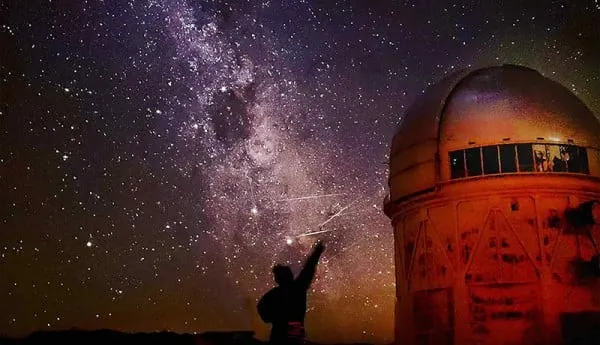
Astounding Discovery: Signs of Life Spotted on Distant Planet K2-18b!
2025-05-08
Author: Wei
A Breakthrough in the Search for Extraterrestrial Life
In an extraordinary find that could change our understanding of the universe, scientists have detected intriguing chemical signatures on the distant exoplanet K2-18b, sparking excitement about the potential for life beyond Earth. This groundbreaking discovery was made using NASA's cutting-edge James Webb Space Telescope, which earlier revealed the presence of water vapor on the planet.
What Makes K2-18b Special?
K2-18b, classified as a 'Hycean world', boasts a thick, hydrogen-rich atmosphere and vast oceans. It is significantly larger than Earth, approximately 8.6 times its mass, offering a unique environment that could support various forms of life. The recent detection of two specific molecules—dimethyl sulfide (DMS) and dimethyl disulfide (DMDS)—has fueled speculation around the existence of life. On our planet, these compounds are typically produced by marine microbes and specialized bacteria.
A Transformational Moment in Astrobiology
Leading the excited discourse, Professor Nikku Madhusudhan from the study team proclaimed, "This is a transformational moment in the search for life beyond our solar system. We’ve demonstrated that it’s possible to detect biosignatures in potentially habitable planets with current technology. We have entered the era of observational astrobiology." This insight marks a significant milestone in our efforts to uncover the mysteries of the cosmos.
Navigating Uncharted Waters
While the findings are exhilarating, researchers are proceeding with caution. Madhusudhan emphasized the importance of considering non-biological explanations for the detected molecules. He stated that while microbial life is a predominant hypothesis, understanding the full scope of these findings requires further investigation.
Looking Ahead: The Future of K2-18b Research
The journey doesn’t end here. Following the initial success, scientists are eager to delve deeper into K2-18b's atmosphere to decode the origins of these chemical signals. The prospect of microbial life, possibly thriving in warmer oceans beneath its hydrogen-rich skies, presents a tantalizing hint at what could lie ahead in our exploration of unknown worlds.
The Bigger Picture
This discovery not only emphasizes the leap in space science capabilities but also shines a light on the vast realms yet to be explored beyond our own solar system. With every new finding, we step closer to answering the age-old question: Are we alone in the universe? Stay tuned as we uncover more astonishing revelations from the cosmos!


 Brasil (PT)
Brasil (PT)
 Canada (EN)
Canada (EN)
 Chile (ES)
Chile (ES)
 Česko (CS)
Česko (CS)
 대한민국 (KO)
대한민국 (KO)
 España (ES)
España (ES)
 France (FR)
France (FR)
 Hong Kong (EN)
Hong Kong (EN)
 Italia (IT)
Italia (IT)
 日本 (JA)
日本 (JA)
 Magyarország (HU)
Magyarország (HU)
 Norge (NO)
Norge (NO)
 Polska (PL)
Polska (PL)
 Schweiz (DE)
Schweiz (DE)
 Singapore (EN)
Singapore (EN)
 Sverige (SV)
Sverige (SV)
 Suomi (FI)
Suomi (FI)
 Türkiye (TR)
Türkiye (TR)
 الإمارات العربية المتحدة (AR)
الإمارات العربية المتحدة (AR)